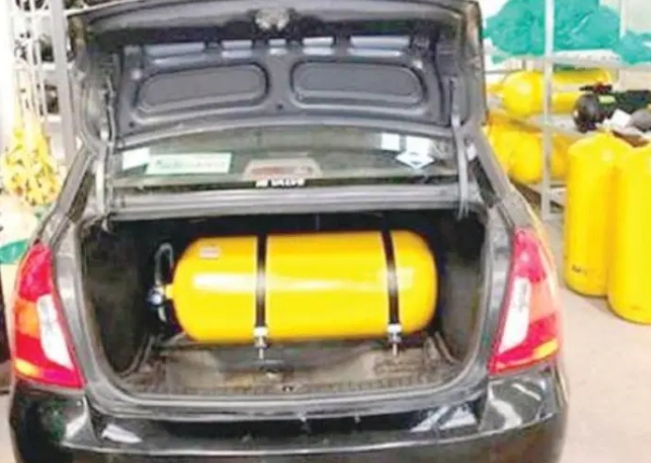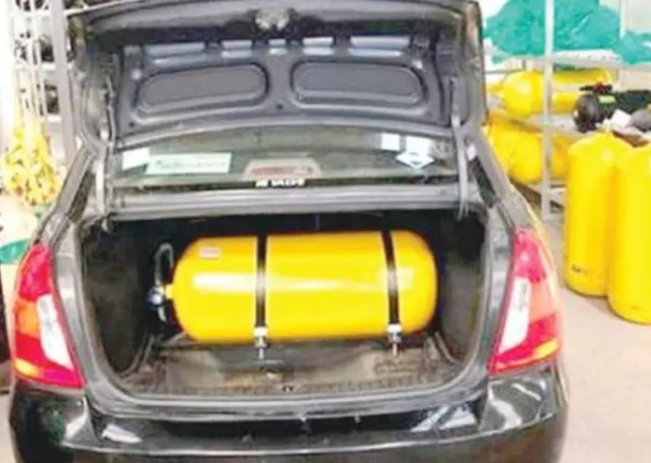By Theodore Opara
The Compressed Natural Gas, CNG technology is one of the trending issues in the country. From every indication many Nigerians are interested in knowing how they can improve their cost of living with the technology which is an alternative to petrol that has become more expensive like never before in the history of the country. While the Federal government is campaigning for the citizens to embrace the technology which many Nigerians opted for, there seems to be some draw backs, especially when the government of Malaysia is thinking of abolishing the technology for safety reasons.
Unfortunately the explosion that took place in Benin, Edo state involving a CNG powered vehicle and another unconfirmed explosion involving a Hiace bus few months ago, have slowed down the zeal of most Nigerians who wanted to embrace the technology as a means of reducing their spending on fuel.
There is no doubt that the CNG technology comes with a whole lot of benefits, but the safety concerns have dealt so much blow on its fast take-off, casting doubt on whether Nigerians would show enthusiasm again on the technology.
Generally, the benefits ranges from cost saving, extended engine life of the vehicle, energy security, environmental benefits, to name a few.
It has been argued that CNG reduces carbondioxide, CO2 emissions by 20 to 30 per cent, particulate matter by 90 per cent, and Oxides of Nitrogen, NOx emission by 50 per cent. The savings derivable from CNG has been put at up to 250 per cent cheaper than petrol and diesel in Nigeria as well as reduced dependence on imported fossil fuels. For the engine, it has been proved that CNG ensures cleaner combustion properties thereby prolonging engine lifespan and service intervals.
Though CNG had recorded huge success in some countries where it brought down transportation cost marginally and the abundant deposit of the gas would save Nigeria huge foreign exchange which could be used in other sector of the economy.
For instance, in India, more than one million vehicles have been converted to CNG with plans for expansion likewise in Pakistan which the figure has tripled, thereby given sign that Nigeria could as well record success with CNG technology if they could jettison the fear about safety of the technology.
Other challenges facing CNG in the country apart from safety is the initial cost of conversion which could be up to 1.7m per vehicle, coupled with the fact that there are very few refueling station across the country.
Seven facts to consider when embarking on CNG conversion
• CNG conversion must be carried out by a well trained technician who is knowledgeable in the technology.
• The vehicle that is being converted must be capable and the right parts must be used. This means that the company handling the conversion must ensure vehicle compatibility with CNG kits.
• It must be ensured that the CNG tank to be installed in a car must be compatible with the weight of the car, the space to be occupied too must be considered for luggage space for the family while traveling.
• Consideration should be given to modify fuel systems, including injectors, fuel lines and regulators.
• Engine calibration must be adjusted for optimum CNG performance.
• CNG tanks are specially built for that purpose. On no account must cooking gas cylinder be used for CNG because they cannot withstand the pressure expected of CNG tank.
• The vehicle to be used for CNG must be fit to carry the weight of the CNG tank which is many times heavier than cooking gas tank. The vehicle should be checked for rust and other shortcoming before CNG conversion.
Source: Vanguard










有道词典是由网易有道出品的全球首款基于搜索引擎技术的全能免费语言翻译软件。简介. 支持中文、英语、日语、韩语、法语、德语、俄语、西班牙语、葡萄牙语、藏语、西语等109种语言翻译。拍照翻译、语音翻译、对话翻译、在线翻译、离线翻译更顺畅。更多的翻译 https://www.youdaoo.com
Mostbet Казино Скачать на Андроид. https://github.com/sewer80/mostbet